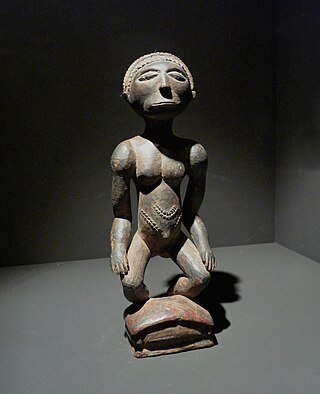
Zambia, officially the Republic of Zambia, is a landlocked country at the crossroads of Central, Southern and East Africa. Its neighbours are the Democratic Republic of the Congo to the north, Tanzania to the north-east, Malawi to the east, Mozambique to the southeast, Zimbabwe and Botswana to the south, Namibia to the southwest, and Angola to the west. The capital city of Zambia is Lusaka, located in the south-central part of Zambia. The population is concentrated mainly around Lusaka in the south and the Copperbelt Province to the north, the core economic hubs of the country.
The history of Zambia experienced many stages from colonization to independence from Britain on October 24, 1964. Northern Rhodesia became a British sphere of influence in the present-day region of Zambia in 1888, and was officially proclaimed a British protectorate in 1924. After many years of suggested mergers, Southern Rhodesia, Northern Rhodesia, and Nyasaland were merged into the British Federation of Rhodesia and Nyasaland.
The pre-colonial history of the modern-day Democratic Republic of the Congo encompasses the history of the Congo Basin region up to the establishment of European colonial rule in the era of New Imperialism and particularly the creation of the Congo Free State and its expansion into the interior after 1885. As the modern territorial boundaries of the Democratic Republic of the Congo did not exist in this period, it is inseparable from the wider pre-colonial histories of Central Africa, the Great Lakes and Rift Valley as well as the Atlantic World and Swahili coast.

The Luba people or Baluba are an ethno-linguistic group indigenous to the south-central region of the Democratic Republic of the Congo. The majority of them live in this country, residing mainly in Katangaand Maniema. The Baluba Tribe consist of many sub-groups or clans

Kazembe is a traditional kingdom in modern-day Zambia, and southeastern Congo. For more than 250 years, Kazembe has been an influential kingdom of the Kiluba-Chibemba, speaking the language of the Eastern Luba-Lunda people of south-central Africa. Its position on trade routes in a well-watered, relatively fertile and well-populated area of forestry, fishery and agricultural resources drew expeditions by traders and explorers who called it variously Kasembe, Cazembe and Casembe.
The Bakwa Dishi is a people belonging to the Luba ethnic group living today in the Kasai-Oriental Province in the Democratic Republic of Congo. Miabi, the Dishi Capital, is located 16 miles (26 km) West of Mbuji-Mayi. The territory of the Bakwa Dishi lies on approximately 1,900 square miles (4,900 km2), which is known as the Miabi territory.
Ilunga Mbidi was a soldier and cultural hero of the Luba and Lunda people.
Tshibinda Ilunga was a Luba Prince and Emperor of the Lunda and their civilizing hero.
Kalala Ilunga was a Prince, King and one of the emperors of Luba Empire, the latter of which spread over the province of Katanga into Zambia and Zimbabwe. A mythic cultural hero who had invented much of Luba culture, Kalala is the first sacred King of the Kingdom of Luba and its most revered son. As the Egyptian Pharaohs and rulers in much of Ancient Egypt and antique world, Luba kings were revered as deities upon death, comparable to Christian "saints’ lives".
Ilunga Tshibinda was a Mwata Gaand of Luba descent. He was the second son of Ilunga Mbidi and younger brother Kalala Ilunga.
Arthur Kalala Katalayi, nicknamed "The Katalyst", is a French businessman, podcaster, consultant and entrepreneur based in the Democratic Republic of Congo. A former senior advisor to the chairman of the board of directors at state-owned copper and cobalt mining company Gecamines, he is a senior partner at boutique management consulting firm A2k Advisory and host for the mining-focused podcast The Right Advice.

The Kingdom of Luba or Luba Empire (1585–1889) was a pre-colonial Central African state that arose in the marshy grasslands of the Upemba Depression in what is now southern Democratic Republic of Congo.

The Holoholo also known as Kalanga are a Bantu ethnic group that inhabit the shores of central lake Tanganyika. The majority of them live near Kalemie city on Lake Tanganyika in Tanganyika Province of the Democratic Republic of the Congo, and on the opposite shore of the lake in Uvinza District of Kigoma Region in Tanzania.
Katende, or Sungu-Katende, was a royal sacred village of the Kingdom of Luba. It was adjacent to the village of Kabondo. Katende is on the upper Lomami in the Lualaba region in the Democratic Republic of the Congo.
Lake Boya is a small lake about 5 kilometres (3.1 mi) east of Kabongo in Katanga Province of the Democratic Republic of the Congo. The lake is surrounded by high reeds, and has a thriving population of birds.
Ilunga Sungu was a ruler (Mulopwe) of the Kingdom of Luba in what is now the Katanga Province of the Democratic Republic of the Congo, said to have reigned from about 1780 to his death.
The Hemba people are a Bantu ethnic group in the Democratic Republic of the Congo (DRC).

Luba art refers to the visual and material culture of the Luba people. Most objects were created by people living along the Lualaba River and around the lakes of the Upemba Depression, or among related peoples to the east in what is now the Democratic Republic of the Congo.




